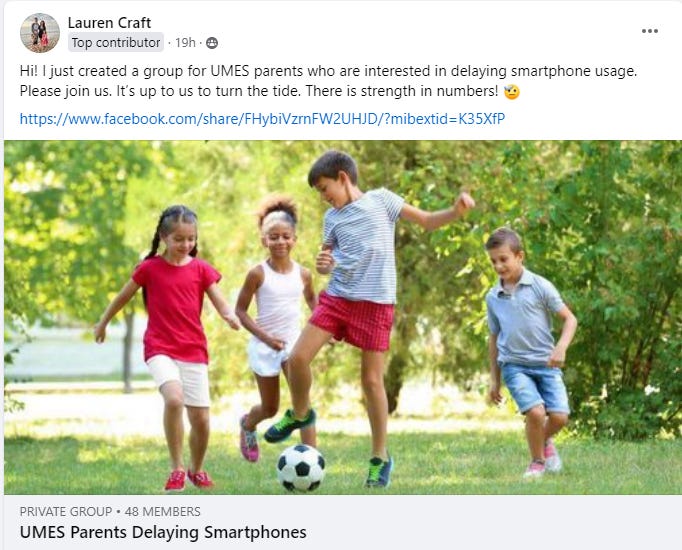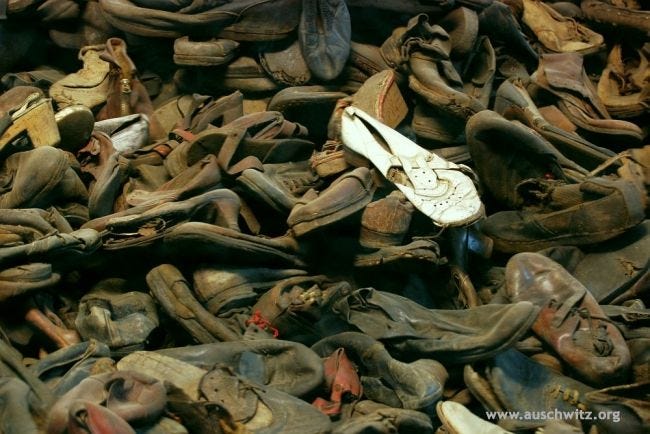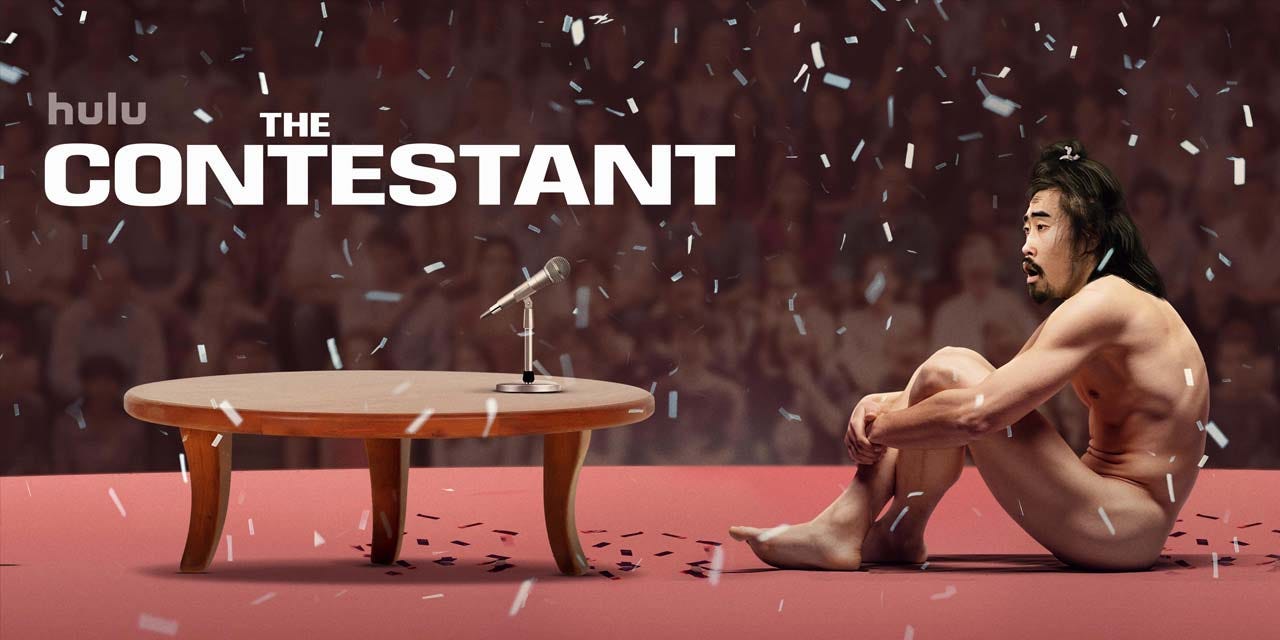A Single Image Depicting Everything Wrong with Social Media
This newsletter is for people yearning for justice in the world. More freedom. More financial stability. More purpose. More community. More humanity. It’s for people who understand that we desperately need free-thinkers willing to disrupt unhelpful norms for the sake of progress. If you are so inclined, become a paid subscriber and support this mission.
Your feed, might be similar to mine, in that dominant topic is smartphones.
and and and synthesize a slew of data on whether and how this technology perverts the mental health of youth. Oprah just interviewed and the parenting “expert” of the moment, Dr. Becky KennedyRegardless of how big the effects are, and whether there are additional variables that influence quality of life, I think we can all agree that some hijacking of attention, emotions, and behavior are happening. Thankfully, people are listening and there is momentum for cultural change. In my youngest child’s elementary school, a parent is building a small community for socializing and play without smartphones.
What’s interesting to me is how many domains of well-being intersect with the problem of excessive, unnecessary smartphone use. For me, this is captured with one image.
A Plea for Discernment
My last trip before the COVID-19 shutdown was to the Auschwitz Memorial in Poland. I was one of approximately 2,320,000 visitors that year. As an Ashkenazi Jew, I went to better understand the darkest moment in human history. The numbers are daunting. Over 1 million people deported to and killed at the Auschwitz concentration camps, most of whom were Jews.

It was a strange experience as our tour guide clearly had unresolved post-traumatic stress from his own familial loss and reliving it multiple times per day. I stopped in front of the glass encasement of hair shaved off prior to being led to the gas chambers, and the shoes removed before their extermination.
As I stood there, grappling with a surge of emotions, my Polish guide launched into a barrage of questions - only directed toward me (not my 3 Polish friends). What did I really know about the Holocaust? Which nation suffered the most victims? Why did the United States hesitate to intervene? How many countries assisted Poland before the United States? His questions were relentless, his face inches from mine. My somber expression seemed to fuel his fervor, as he only spoke faster, closer, with more rage. My friends had to step in, requesting him in Polish to give me some space to process the enormity of the horror.
He didn't take kindly to our suggestion. I was at a loss. After all, how could anyone fully understand or react to the remnants of such an atrocity - the sight of personal items once worn by victims, the chilling sound of the gas chamber's metal door opening and closing before a retelling of how the killing happened, the coarse texture of wooden bunk beds in the barracks where children fated to die waited. Even now, safe at home decades after this horror, writing about my 2019 visit alters my breathing.
I bring this up to leave you with this. A single picture that captures everything wrong with social media.

The audacity to pose on the same railroad tracks used to transport 1 million humans for annihilation. Observe the woman above being photographed in a seductive pose. A moment of deep reflection on morality is nixed for an opportunity for attention seeking.
As James Clear, reminds us:
This excessive self-focus, often morally bankrupt, is what social media incentivizes.
But I believe something far more pernicious happened in this image:
A lost opportunity to observe humanity at its worst, to endure the painful emotions and thoughts provoked, and pledge to play a part in preventing such horrors from ever recurring.
Our humanity is being stripped - Transfixed by online communications, modifying our behavior to be liked instead of virtuous (read more on my 5 criteria for better decision making - here).
Who knows what outcomes will arise decades from now from this social experiment. I imagine a technology that enables us to be more, not less, present is what’s needed. Where we can express interest, show compassion, change our mind, and let ourselves see and be seen.
Extra Curiosities
The historical annals often pinpoint MTV’s The Real World as the beginning of reality television. Oh no, ethnocentric movie buffs. Something far more sinister was released in Japan where one man had to survive in solitary confinement with barely a cracker and some water for 15 months. His only hope for sanity? Winning magazine sweepstakes prizes. It was huge. It was unethical. It raises serious questions about whether consent is too low of a bar for these kinds of social experiments. The footage is available online or even better, watch the documentary on Hulu - here. Don’t say I didn’t offer a warning - where your reactions offer insight into psychopathy scores.
When it comes to tools that help us navigate our decisions, assist others, and sidestep the pitfalls of ego (like taking selfies at Auschwitz), there's one resource that stands out. It's a book hailed as the most widely read coaching guide this century: "The Coaching Habit" by Michael Bungay Stanier. Built around 7 profound questions, delve deep into your psyche, uncovering insights about who you are and could become. I've known Michael for years and can vouch for his rare combo of wisdom + playfulness. It’s why I have six of his books on my shelf. So here's an opportunity you don't want to miss:
Purchase a copy of "The Coaching Habit" between now and May 20th. You can get it here.
Register on this website with your receipt.
Not only will you get access to 3 free training webinars, you'll get a chance to win coaching sessions with Michael, recipient of the prestigious Thinkers50 2023 Coaching and Mentoring Award. (You will be competing with me and I’ll see you at the webinars.)
Write me a note on the question that’s having the most profound impact on you.
Todd B. Kashdan is an author of several books including The Upside of Your Dark Side (Penguin) and The Art of Insubordination: How to Dissent and Defy Effectively (Avery/Penguin) and Professor of Psychology and Leader of The Well-Being Laboratory at George Mason University.
Read Past Issues Here Including:
Principled Protests: A Guide to Influencing Without Alienating
You've seen the headlines. Gaza protests at universities. Russian invasion of Ukraine. Really old men running for president. Culture war issues from “What is a woman?” to “Is meritocracy is a bad word?” to “What’s the effectiveness of a colorblind approach for addressing rac









I am speechless. At first I thought it would be some kind of shallow selfie that would portray this and sure in some ways it almost is that. But who would do such a thing and how and why would they ever have an idea cross their mind that this was something photo worthy in such context? It is appalling. And then it isn’t the individual either that’s the problem actually. Thank you for bringing this into the bigger picture - how all of us especially the youngest ones are plagued by this never ending thirst for social media approval and “fame”. It is so hard nowadays to connect with other humans in a meaningful way. Social media is making sure we are far removed from any true human connections and only aims to erase even a potential of any meaningful connections in the future for us humans worldwide. So sad and heartbreaking. I truly hope we will get out of this and turn a corner for the better some days away from such shallow meaningless social media desires.
Thanks Lina. Yes, it hurt me as well to see this, especially with what is going in the world today in terms of anti-semitism - front page of most major newspapers.